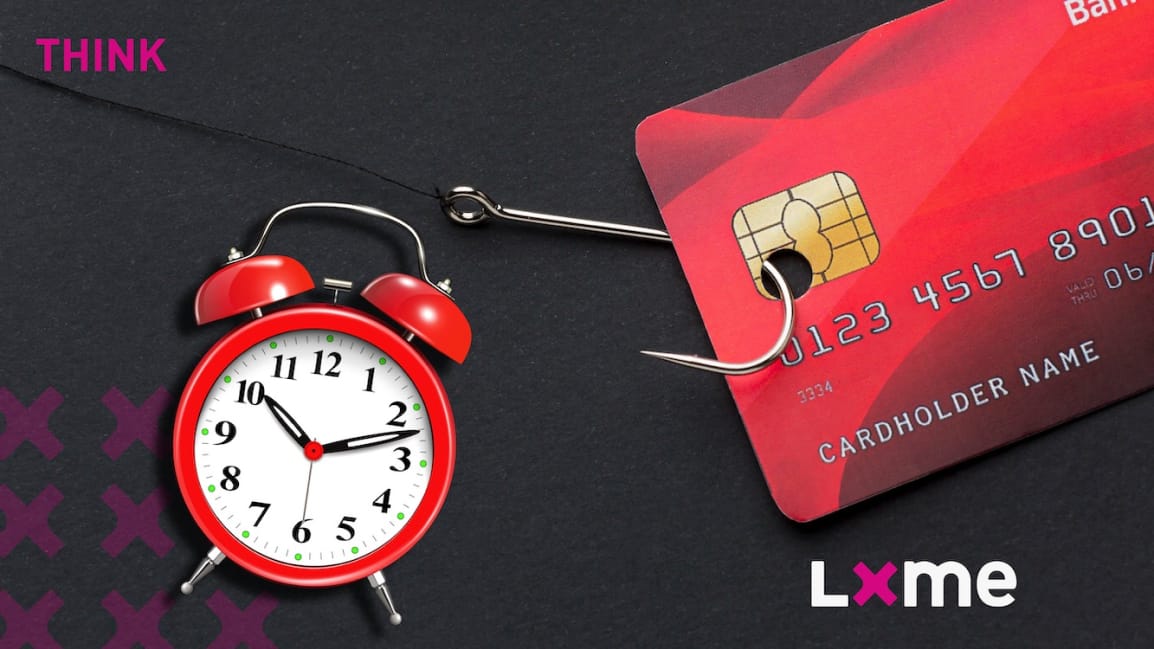Drishti, Senior Engineer, had applied for a home loan but her application got rejected due to low credit score. At the same time, her colleague Ritu also applied for a home loan, and her application was approved and the loan was sanctioned as she had a good credit score. Drishti was curious to know about what is credit score and how to improve credit score.
So, let’s have a look at credit score and ways to improve it with Drishti,
What is Credit Score?
A 3-digit score is used by banks/financial institutions to identify the creditworthiness of an individual. There are four major Credit Information Companies, namely CIBIL, Experian, Equifax, and Highmark in India. The most popular Credit Information Company in India is TransUnion CIBIL which gives a CIBIL Score. It ranges from 300-900. Higher the better.
- Most banks and lenders in India have the credit score downloaded from CIBIL.com to arrive at a decision to grant you a loan or not. It is like a mark sheet, that tells us the performance of your past credit behavior.
- The lenders refer to your credit score before approving your credit application.
- Good credit is certainly a winner in every loan or credit application.
How to check my credit score for free?
This question might have popped up in your mind. So, the answer to this question is you can check online for free at www.cibil.com
What is a good credit score range?
Any credit score of 750 and above is considered a good credit score. Here’s how you can assess your credit score:
What are the factors affecting your credit score?
1. Repayment History: Previous loans are considered to check whether a person makes a timely payment or not. Payment history is the most critical factor in credit scoring, and even one missed payment can have a negative impact on your score. Lenders want to be sure that you will pay back your debt, and on time, when they are considering you for new credit/loan. So, pay your bills and EMI on time.
2. Credit Mix: There are different types of loans such as secured and unsecured loans. People with top credit scores often carry a diverse portfolio of credit accounts which might include a car loan, credit card, student loan, mortgage or other credit products. Credit scoring models consider the types of accounts and how many credits you have as an indication of how well you manage a wide range of debt and loans.
3. Credit Utilization: How much percentage of your credit limit are you using? Your credit usage is particularly represented by your credit utilization ratio. Your credit utilization ratio is calculated by dividing the total revolving credit (Revolving credit refers to an open-ended credit account like a credit card or other “line of credit” that can be used and paid down repeatedly as long as the account remains open)you are currently using by the total of all your revolving credit limits.
4. Multiple Enquiries: Enquiring about different types of loans at the same time can indicate increased risk, and as such can hurt your credit score.
How to improve Credit Score?
1. Plan your credits: If you apply for too many credit cards just to increase your credit limit, but are unable to pay the bills off on time of all of them, then you will be left with a huge outstanding balance and a history of delayed payments that will decrease your score by a lot. Thus, it is important to plan credit and apply for a credit card or any other type of loan only if it is absolutely required and when you are sure that you will be able to repay the amount you have borrowed.
2. Set reminders and repay your EMIs, and credit card bills on time: Payment history is one of the factors that is taken into consideration while calculating the credit score. You can activate your payment alerts or auto debit facilities so that you do not miss any due dates this way get reminders and you can pay your bills or EMIs on time.
3. Don’t apply for too many loans at the same time: Hard enquiry is a detailed analysis of your credit profile to assess how much risk you possess as a borrower by the lender or company requesting to review your credit report as part of the loan application process. Opening a new credit line increases your credit limit, but every application for a new credit line creates a hard enquiry on your credit report. Multiple hard enquiries in a short span can create a negative impact on your credit score.
4. Maintain a healthy credit mix: You should maintain the right combination of secured as well as unsecured loans. A proper ratio of long-term as well as short-term debts can be maintained. Too many unsecured loans may have a negative impact on your credit score.
5. Consider Tenor of Loans: When you are borrowing any loan make sure that you consider your affordability and accordingly choose the tenor of your loan. If you have financial limitations then take a long tenor loan this will enable you to have lower EMI amounts and you don’t have to stress on your finances.
6. Review Your Credit Reports: To improve your credit score you can review your credit reports periodically this will help you to see what’s helping or hurting your score.
7. Use your credit limit: You should wisely utilise the credit limit you have. It is suggested to maintain a healthy gap between your credit utilization and your total credit limit. This has a very high impact on your credit score. For example: if you have a credit limit of 1 lakh it is wise to use only credit up to 30%. This ensures that you can pay off the credit easily which is why your credit score is affected by this. Utilising the maximum credit limit might put your credit score a hit as if you are not able to pay the debt the lender may suffer a huge loss hence it is advised to ensure this healthy gap.
Now all your questions such as how to improve credit score and how to increase credit score have been answered.
“If you fail to pay your minimums for any debt on time your credit score will take a major hit and you run the risk of seeing the interest rate on all of your cards go up. An easy way to remind yourself to pay is to sign up to receive your statements via e-mail.”
– Alexa Von Tobel
Now, Drishti has got an insight into how to improve the credit score, what is a credit score, what is a good credit score or how to increase credit score she will work on removing discrepancies in her credit score by following practices like repaying her EMIs and credit card bills on time, planning her expenses and budgeting accordingly, and borrowing smartly.
Similar blog you may also like to read –7 Questions to Ask Yourself Before Getting a Credit Card
FAQs:
What is a good CIBIL score?
A good CIBIL score, also known as a credit score, typically ranges between 750 and 900. This score reflects a borrower’s creditworthiness and indicates a strong likelihood of timely repayment of loans and credit card bills. Lenders consider individuals with a CIBIL score within this range as low-risk borrowers, making them eligible for better loan terms and interest rates.
What is the CIBIL score range?
The CIBIL score range extends from 300 to 900, with higher scores indicating better creditworthiness. Here’s a breakdown of the CIBIL score ranges and their significance:
● 300 to 549: Poor credit score, indicating a high risk of default. Individuals in this range may struggle to secure credit or loans.
● 550 to 649: Fair credit score, suggesting a moderate risk. Borrowers in this range may qualify for credit but at higher interest rates.
● 650 to 749: Good credit score, indicating a lower risk. Individuals in this range are likely to qualify for credit with favourable terms.
● 750 to 900: Excellent credit score, reflecting a minimal risk of default. Lenders highly favour borrowers in this range and can access credit at the best terms and rates.
How to raise credit score?
To raise your credit score, consider implementing the following strategies:
● Pay your bills on time: Timely payment of bills, including credit card bills and loan instalments, is crucial for maintaining a good credit score.
● Reduce credit utilisation: Aim to keep your credit utilisation ratio (the amount of credit used relative to your total available credit) below 30%.
● Monitor your credit report: Regularly review your credit report for errors or discrepancies and address any issues promptly.
● Maintain a diverse credit mix: A mix of credit types, such as credit cards, loans, and mortgages, can positively impact your credit score.
● Avoid multiple credit inquiries: Limit the number of credit inquiries, as multiple inquiries within a short period can negatively affect your credit score.
How to get a better credit score?
To improve your credit score, focus on the following actions:
● Establish a positive credit history: Consistently demonstrate responsible credit behaviour over time by paying bills on time and managing credit accounts wisely.
● Settle outstanding debts: Pay off outstanding debts to reduce your overall debt burden and improve your credit utilization ratio.
● Limit new credit applications: Avoid opening multiple new credit accounts within a short period, as this can signal financial instability to lenders.
● Regularly check your credit report: Monitor your credit report for accuracy and address any errors or discrepancies promptly to maintain a healthy credit score.
● Be patient and persistent: Improving your credit score takes time and dedication, so stay committed to responsible financial habits and monitor your progress regularly.
New Investor? Request a Callback.
Fill in your details and we will guide you at every step
other blogs

Credit Card Money Hacks June 29, 2024
Credit cards can be magic cards when used correctly!
Your credit card offers 15% off apparel and accessories. The first time you meet it, it promises to be your friend—until you look closely and realize it’s not. You have been ripped off. The unstoppable scoffing running into your mind, “Should have read the fine prints. Should’ve known before getting into this”. The hit on … Credit cards can be magic cards when used correctly!

Credit Card Loan January 19, 2024
Are you in a Debt Trap? How do you break out of it?
Amongst the subject that people like to talk about DEBT ranks right between upgrading a sewing kit and other people’s missions in life. Our brain just doesn’t wish to talk about it or hear it and that reaction is the reason why it’s hard to pay it off. However, there’s hope, through a couple of … Are you in a Debt Trap? How do you break out of it?

Credit Card September 13, 2023
Online Prepaid Card – LXME Dream Card for Women
Picture this: You’re scrolling through your favourite website, eyes locked on that gorgeous Saree. It’s love at first sight. Just when you thought it couldn’t get any better, there it is – your long awaited lipstick makes an appearance. Your excitement surges, you get all geared up for some carefree spending!! Yet, a thought creeps … Online Prepaid Card – LXME Dream Card for Women









